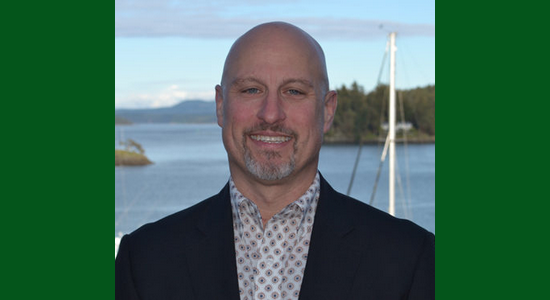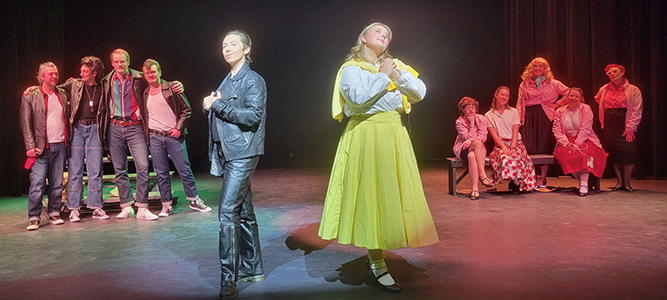||| MIDNIGHT MUTTERINGS by JACKIE BATES |||
When I was teaching elementary school (possibly before you were born), students (pupils) were expected to call teachers, principals, and almost all adults ‘Mr, Mrs, Miss.’ (occasionally) ‘Dr, ‘and later, ‘Ms.’ It was the required, respectful thing to do.
The exception would have been that children of higher status (richer, royal, of lighter skin, etc.) than the adult (custodian, school bus driver, lunch ‘lady,’ crossing guard, or some other ‘lesser’ human being, likely of darker skin or otherwise ‘foreign looking or poorly dressed–something).’
These ‘lesser’ adult beings might have been less clean, possibly physically handicapped, mentally challenged, speaking something other than English or were just plain out of luck. Something—anything—that made that person less deserving of respect in the culture
Interactions between a ‘lesser’ adult and a luckier child required that the child be treated with respect by calling him or her (the only choices at the time) Mr. or Miss, or sometimes Master, or ‘Young Master.’ Even my own son was occasionally treated with such ‘respect,’ It ended badly, when the adult leaned down and shook his small hand and said (before thinking it through), ‘And this must be Young Master Bates.’
Well, I didn’t like being called ‘Mrs. Bates,’ even it supposedly meant respect in the school and greater culture Still don’t. You can call me Jackie Bates, or Jackie or Jacqueline, if you’re feeling formal, or even ‘Hey you.’ I’d prefer that.
Long ago, when I was in graduate school at an esteemed, supposedly egalitarian university, trying to study gender development before such a field existed, a group put out a student directory. Some of the names had an asterisk. MY name had an asterisk, without any mention of what an asterisk designated. I realized that some, but not all obviously female names, received an asterisk. After some complicated investigation, I found that the women who merited the asterisk were married. None of the obviously male names was asterisk-designated. But why? I never found out what that was about. I have to assume that men need to know if women were married before hitting on them but women need no such warning, or even if the man hitting of them was married. Nor did I find out in what official record our names, and addresses and phone numbers were gleaned included marital status. Or
why or who made the decision to grant married women and only married women the asterisk. Oh, and one other strange thing that was actual official: My husband was able to get scholarships and loans because he had a family to support while I was denied such financial aid because I had a husband. That was even though we had identical incomes and financial responsibilities.
What has always meant respect to me is to call people their preferred names and terms. Yes, it’s less convenient for the speaker. But more respectful.
Now, back to gender (if you managed to wade through my previous two columns on the subject): it is my opinion that we have reached a point in our evolution in which we need to accept that gender development and identity is more complex than we had imagined in a simpler, less egalitarian world. It’s time we realized that for some people gender identity, and gender itself is more fluid. That binary gender identification does not work well all the time. And often it can be hurtful.
We can do this. We can accept other people’s gender identifications. It’s the respectful thing to do. We can set our own (if we have them) discomforts aside. We can listen carefully to how other people wish to be addressed and referred to and we can honor that.
The sticky bit for some of us who consider gender identification an individual right and want to honor and appreciate it, is the preference/right to use ‘they, their and them’ as gender neutral. We might not know how to handle this and give up our previous understanding that these are always plural terms. It is awkward for some of us. For me too.
Having grown up in the South (as I remind you too often) I understand that ‘you’ is singular and ‘you all’ is plural, and that the designation is useful. If I go up to a group of people and announce that I am going home and I hope ‘you’ can come by later, the people in the group don’t know who is invited. If I say ‘you all’ can come by later, everyone in the group knows everyone is invited. In Southern dialect, ‘you all’ or worse, ‘ya’ll’) is never singular. Anyone who addresses a singular person as ‘you all’ does not speak the dialect or is pulling your leg. Anyone who thinks a person alone is referred to as ‘you all’ is mistaken. (You know who you are, Jeff.)
Giving up thinking ‘they’ or ‘their’ or ‘them’ is always plural needs to happen now. That includes me.
We can do this. We can respect our fellow humans. We can mind our pronouns. We can change. It’s important.
Recently, I was looking for a person who has transitioned from female to male. I asked a co-worker if ‘John’ was available. The answer was, ‘She’s not here. She’ll be back later.’
I tried to correct gently with a question? ‘He’ll be back in an hour or so?’
The response was disappointing: ‘Whatever. Back later.’
We can do better. I can do better. We can all try to do better. We can apologize and correct ourselves when we misspeak. It’s important. It’s important to respect each other. It’s important for all of us to be called the names and genders and terms we respectfully request. We can do this.
**If you are reading theOrcasonian for free, thank your fellow islanders. If you would like to support theOrcasonian CLICK HERE to set your modestly-priced, voluntary subscription. Otherwise, no worries; we’re happy to share with you.**









Jackie, I appreciate your lay-out of more of the subject.
What is difficult for me (I’ve not yet needed to use “they, them. their” which I don’t think I can do…we need new pronouns.) is when someone introcuces me to “my wife” or “my husband”, or mentions them in conversation. My memory is short, and I’m very likely to forget that nomenclature and go back to wondering. “Did they say partner, or housemate, or dear friend. or classmate from ’02?
How do you get around memory lapse?
I’ve always loved your sense of humor, Jackie, but this piece of writing is just wonderful. And I so agree with its content. I have decided to explain to anyone who desires to be called the genderless plural pronoun that I will try my hardest to do that and ask them please to correct me when I fall short of the mark. I’m trying to learn and I will certainly need their help in doing so. Thanks, Jackie.
As a writer of some 40 years and counting, I have great problems with “they” (or “them” or “their”) being singular. Not in my lifetime (which will probably end in a decade or two). If anything, I prefer “s/he” for those of ambiguous gender identity and “he” or “she” for the rest of us.
Or should we start saying “they all” or “them all” when we want to specify the plural? Not sure what to do with the possessive — “all theirs”?